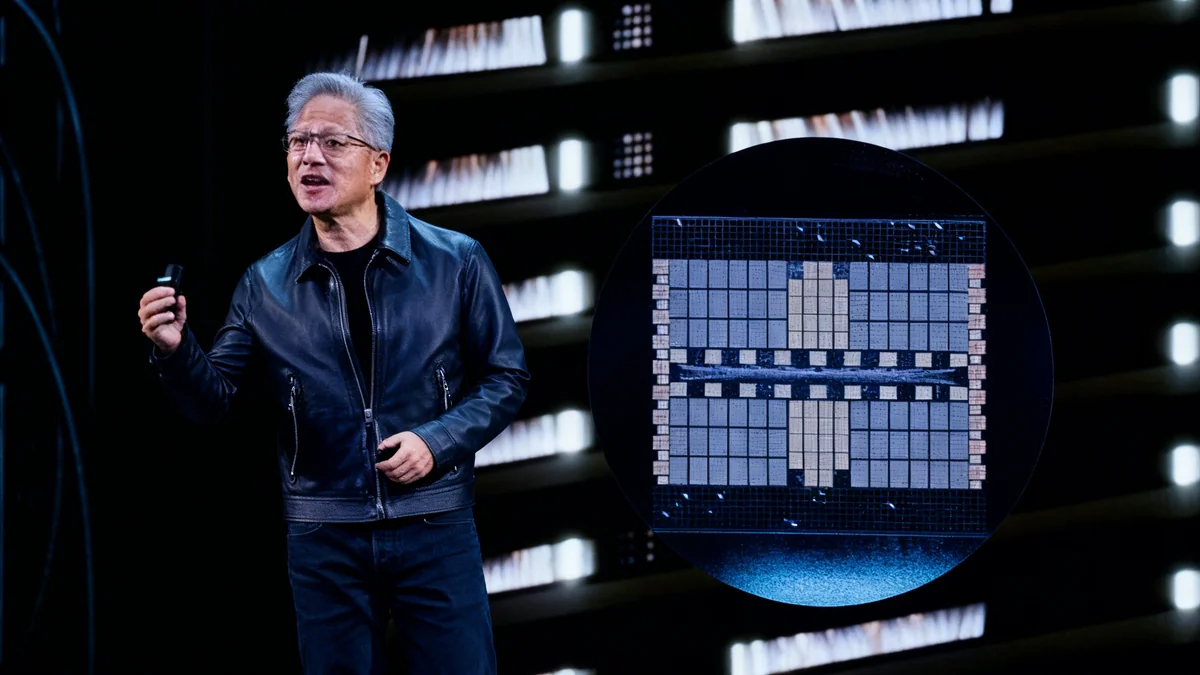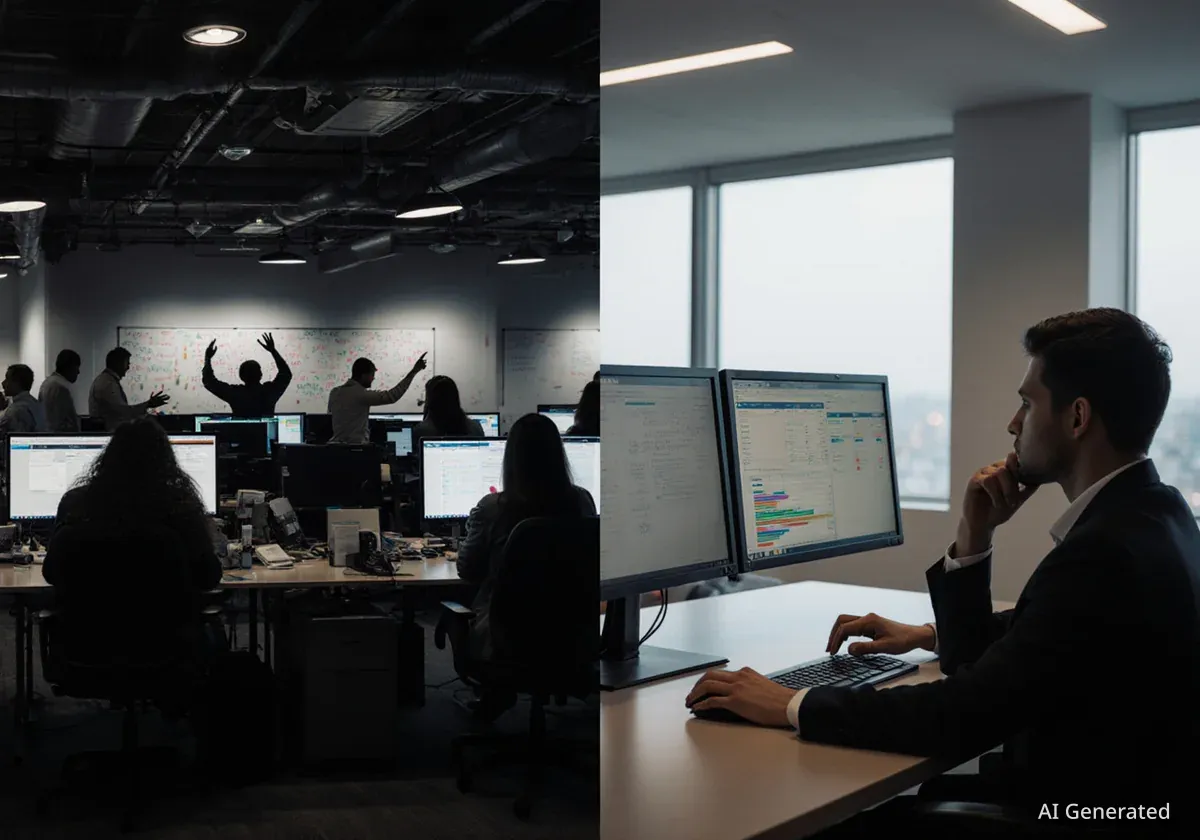Burnt, a technology startup using artificial intelligence to modernize food supply chain operations, has secured $3.8 million in a seed funding round. The investment was led by Penny Jar Capital, a venture firm backed by NBA star Steph Curry, and aims to address long-standing inefficiencies in the trillion-dollar U.S. food market.
The company develops AI agents designed to automate complex back-office tasks, such as order processing, without requiring businesses to replace their existing software systems. This approach targets an industry that has historically been slow to adopt new technology due to the high cost and disruption of traditional software upgrades.
Key Takeaways
- Funding Secured: Burnt raised $3.8 million in a seed round led by Penny Jar Capital, with participation from Scribble Ventures and Formation VC.
- Problem Solved: The startup's AI agents automate manual order entry and other back-office tasks for food distributors, a process currently handled through emails, texts, and spreadsheets.
- Market Traction: Since its January launch, Burnt has processed over $10 million in monthly orders and is generating six-figure revenue.
- Unique Approach: Instead of replacing legacy systems, Burnt's AI works with existing software, reducing disruption for businesses.
Addressing Decades of Inefficiency in Food Distribution
The global food supply chain is characterized by complex and often outdated operational methods. Food distributors typically receive orders through a variety of channels, including phone calls, emails, text messages, and even faxes. Staff must then manually enter this information into enterprise resource planning (ERP) systems, many of which are decades old.
This manual process consumes significant time and introduces a high risk of error. For an industry operating on very thin profit margins, these inefficiencies can have a substantial impact on profitability and growth.
Joseph Jacob, the co-founder and CEO of Burnt, has direct experience with these challenges. His family has been involved in the seafood supply chain for four generations, starting with his great-grandfather, who was the first to export shrimp from India to the United States in the 1930s.
Personal Experience Drives Innovation
After working on the factory floor of a shrimp processor in India and later managing large-scale seafood imports in the U.S., Jacob saw the problems firsthand. He noted that crucial business operations were being managed with basic tools like Excel spreadsheets and a 20-year-old ERP system.
"In a business with razor-thin margins, it’s nearly impossible to succeed without good supply chain management," Jacob stated. "We went through multiple software implementations, but two rollouts failed. That’s when I realized I wanted to build software for this industry, not just work in it."
This experience highlighted a major gap in the market. While large enterprise software vendors have attempted to sell complex solutions to distributors for years, these projects often fail. They tend to be expensive, take years to implement, and cause significant disruption to small and mid-sized businesses that form the backbone of the industry.
AI Agents as a Practical Solution
Burnt's strategy is to avoid the common pitfalls of large-scale software replacement. Instead, the company layers its AI agents on top of the systems that businesses already use. This allows companies to automate their processes without undergoing a costly and risky overhaul of their entire technology infrastructure.
What Are AI Agents?
AI agents are software programs designed to perform specific tasks autonomously on behalf of a user. In Burnt's case, the agent can read and understand orders from different sources, extract the necessary information, and enter it into a company's ERP system, mimicking the actions a human employee would take.
The company's first AI agent, named Ozai, focuses on automating the order-entry process. According to Jacob, Ozai can handle up to 80% of the workflows that are currently managed through outdated systems and manual labor. This frees up sales and administrative staff to focus on more valuable activities, such as customer service and business development.
Early Success and Growth
- Monthly Order Volume: Over $10 million processed per month.
- Customer Base: Serving distributors in seafood, specialty goods, and packaged foods.
- Major Client: Currently implementing its system with one of the largest food conglomerates in the U.K.
- Revenue: The company is already generating six-figure revenue and reports steady month-over-month growth.
Building Trust in a Skeptical Industry
One of the biggest hurdles for technology companies entering the food industry is a deep-seated skepticism toward outsiders. Decades of failed technology projects have left many operators wary of "tech tourists" who lack genuine industry experience.
Burnt's founding team has leveraged their deep roots in the food and restaurant sectors to build credibility. Jacob's multi-generational family history in the seafood business provides an authentic understanding of the industry's pain points.
The expertise extends to his co-founders. Chief Product Officer Rhea Karimpanal, who is also Jacob's wife, grew up in a family that operated restaurants. Chief Technology Officer Chandru Shanmugasundaram has a background in building software systems for restaurant applications. This collective experience helps the team connect with customers and design solutions that are practical and effective.
Securing Investment for an Overlooked Market
While AI is a popular area for venture capital investment, convincing investors to back a company focused on the back-office operations of food distributors was not simple. Jacob mentioned that many investors lacked conviction in the market despite its massive size.
Penny Jar Capital, however, saw the potential. The firm's investment strategy focuses on supporting founders who are building solutions for overlooked industries with low technology adoption rates.
"Two decades of missed software adoption is a massive opportunity," Jacob explained. "Investors who understand this know it can be huge if executed right."
The $3.8 million in funding will enable Burnt to further develop its AI agents, expand its team, and scale its operations to serve more distributors in the U.S. and abroad. By providing a non-disruptive path to automation, the company aims to finally bring the benefits of modern technology to a critical global industry.





